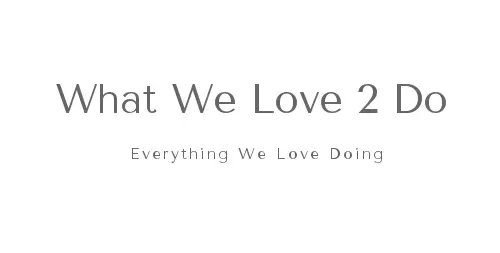While comedy isn’t necessarily universal, different cultures do tend to have different comedic tastes. This can be seen in the popularity of certain types of humor, as well as the reactions to those types of humor. For example, sarcasm is hard to translate from one language to another. French humor vs American humor is one of these interesting areas where the differences are immediately apparent.
Many people have different opinions about which style of comedy is better or funnier, and each side has its strong supporters. In this blog post, you will get to know how two styles of humor differ so much. It would help you to understand the humor while traveling in these countries for sure.
Table of Contents
Differences Between French Humor and American Humor
What makes people laugh?
It’s a question that can only be answered by individual tastes. But what if I say one culture finds certain forms of comedy just downright offensive? It’s true.
One look at America’s Funniest Home Videos will give you a clear idea of how far American humor has evolved over time. In fact, it seems as though there are some jokes that are better left unsaid.
You might be surprised to discover that Americans don’t have a monopoly on politically incorrect humor!
Let’s get to know about the differences between French humor and American humor.
It Depends on Context
One big difference between French and American humor is that many stereotypes are based on truth.
Especially when it comes to cultural stereotypes. For example, if an American comedian were to say something like the French are always late for dinner parties, he would probably get a few laughs.
However, a Frenchman saying something similar would likely be met with harsh criticism. This is because France takes pride in its culinary skills and considers dinner parties to be sacred affairs.
Therefore, any jokes made about them being late for such events would most likely offend their guests rather than entertain them.
The same goes for other nationalities.
When traveling abroad, try to avoid making off-color jokes about other countries or cultures unless you know your audience well enough to measure whether or not they’ll appreciate your sense of humor.
Cultural Differences
The second major difference between French and American humor is that many things deemed humorous in America are considered rude and inappropriate in France.
For instance, many times during movies or television shows, actors will use subtitles that contain unspoken thoughts that viewers can interpret themselves. Because these words aren’t spoken aloud. While these kinds of subtitled lines are often seen as clever and amusing in America, such dialogue might be highly offensive in France.
That’s because while American audiences tend to accept mild cursing more readily than others, French audiences tend to take offense at even mild curses. As a result, American sitcoms and movies are frequently edited before airing in France.
Tone of Voice
Another difference between French and American humor is that tone of voice matters.
For example, in America, a sarcastic comment generally isn’t taken seriously.
However, in France, sarcasm tends to be perceived as a serious insult.
As a result, much of what Americans consider jokes are taken very seriously by French audiences.
For example, if a French man tells a woman she’s pretty, she would be offended if he didn’t mean it.
In America, we tend to see that as a compliment; in France, it’s perceived as an insult.
Respect for Authority
The fourth difference between French and American humor is that many jokes poke fun at authority figures or people in positions of power.
In America, it’s not uncommon for us to poke fun at authority figures or people in positions of power.
In France, however, it’s quite common for people to respect authority figures and those in positions of power. For example, if a student were to tell a teacher that they thought they weren’t doing a good job teaching the class, that would be grounds for expulsion.
Class Consciousness
The fifth and final difference between French and American humor is that Americans tend to not be as class-conscious as people in France.
For example, in America, it’s not uncommon for people to make jokes about other people’s accents or where they come from.
In France, however, such jokes are usually frowned upon because they can be offensive.
For example, if a French person were to make fun of an American for having a Southern drawl, that would be taken as an insult.
In America, it would be taken as a joke. As you can see, many of these rules tend to change depending on where you are in the world.
So, it’s important to keep these differences in mind if you’re planning on traveling abroad or communicating with people from other cultures.
Intentions of the joke
The intent of a joke often dictates which culture it’s more likely to appeal to.
For example, French people are more concerned with form, so a phrase that breaks an unspoken social code like Open your mouth! or Get away from me! might be funnier to them than an obvious joke like, knock knock. Who’s there? The police. The police who? Don’t worry, I already called them.
In contrast, Americans tend to prefer jokes with punch lines and stories over one-liners. They also tend to use humor as a way to connect with others.
For instance, you may tell someone about something embarrassing that happened in order to build rapport. This type of humor can come across as misleadingif you don’t have a close relationship with someone.
It can also come across as offensive if you aren’t making fun of yourself in some way. If you try to crack a joke at someone else’s expense, they might not find it funny.
And remember, Not everyone gets your sense of humor. Just because you think something is hilarious doesn’t mean everyone will agree.
Standup comedy in France vs the US
Standup comedy in France differs from standup comedy in America. As an example, they have no need for self-judgmental humor and hardly ever insult a race or a religion.
On top of that, they have more tolerance for vulgarity, especially since it’s delivered with wit and intelligence. Their sense of humor also tends to be much darker than Americans as well as much more direct.
Finally, you will rarely see a joke told by one person on stage here in America, but there are many comedians who tell jokes together on stage over there. This is because they don’t want to offend anyone while telling a joke.
In fact, if someone tells a joke that could potentially offend someone else in some way, then people just won’t laugh at all because they don’t want to hurt anyone else’s feelings.
However, these differences aren’t really noticeable until you watch standup comedy shows featuring French comedians versus those featuring American ones.
Comedy Movies in France vs the US
America’s most popular comedians of all time Jerry Lewis (also a producer) and his show The Jerry Lewis Show was wildly popular in France when it first aired in 1962. His sketches were even more popular there than they were at home in America.
It seems that French people love their comedy movies just as much as Americans do. However, what constitutes comedy varies greatly from country to country.
For example, while many American comedies feature slapstick humor or absurd situations, many French comedies are known for being lighthearted and silly. In other words, they don’t take themselves too seriously. This can be seen in films like Amélie (2001) or Ridicule (1996).
In fact, these days French humor is often used as an adjective to describe quirky or subtle jokes.
In terms of history, it turns out that America and France have a lot in common when it comes to comedy.
For example, both countries have historical roots in vaudeville, which has led to a focus on physicality over verbal delivery.
Additionally, although you may be surprised to hear it, many of today’s top comedians actually got their start in France.
In fact, French comedy has been exported all over Europe for decades.
However, what Americans think of as French comedy typically comes from films that were produced by Hollywood studios and marketed for American audiences.
How we digest a joke in both cultures
There’s an old joke that says there are three kinds of people in France: those who can count and those who can’t.
It isn’t true but it illustrates a real difference between our perception of a joke.
An American comedianwill usually try to include some information gap, that is, something funny that only somebody well-versed in a particular topic would understand.
But what about someone who doesn’t know anything about that topic?
The French approach is to make sure everyone gets it, and as long as they do, they don’t care if anyone else thinks it’s funny.
This leads to more universal humor that plays off everyday life rather than niche interests.
For example, you could say I bought my wife a new washing machine for Christmas…it was on sale!
That might get a laugh from an American audience because most Americans know you don’t put your spouse on sale. In France, however, no one would think twice about such a statement because putting your wife on sale wouldn’t be considered odd or humorous at all.
Wrapping things up
When you think about French humor vs American humor, there’s a reason why you only see a few comic actors from France in Hollywood. Americans and French people like to laugh at different things. But it wasn’t always that way. Once upon a time, Americans and French people were similar.
They both enjoyed silly slapstick, physical comedy like custard pies, pie fights, and other common stuff. Today, though, they have evolved in very different directions, which might just be part of what makes their modern culture so interesting. For example, American comedians tend to get more laughs by making fun of others, while French comics seem better able to make light of themselves.






